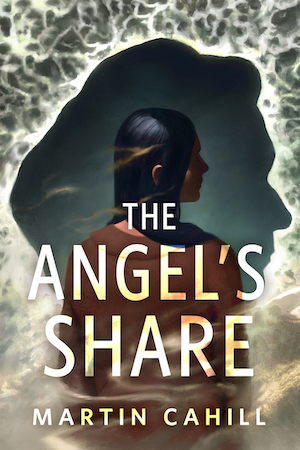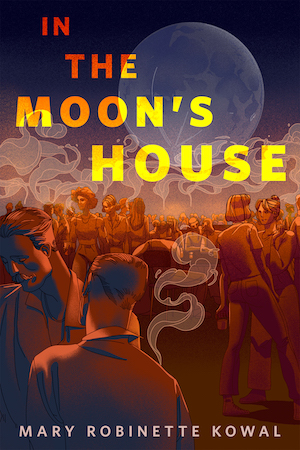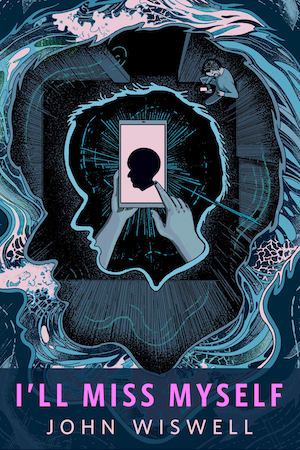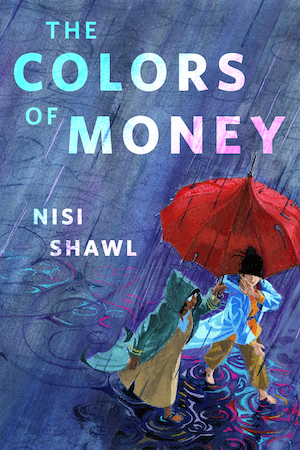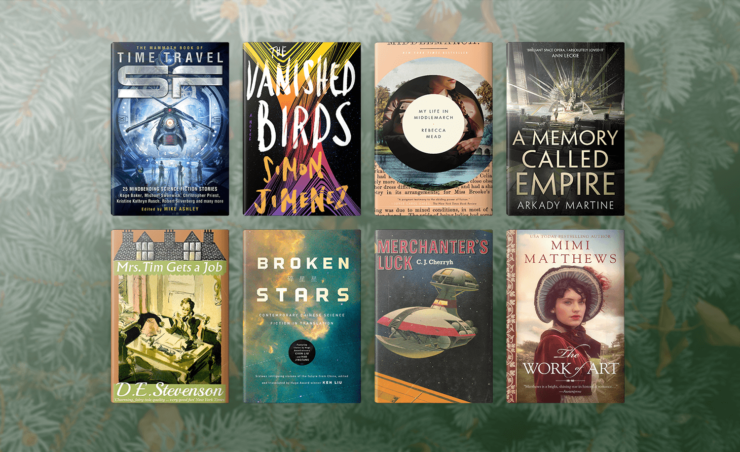No travel in December, lots of socialising, but also plenty of reading—I read 25 books, and some of them were amazing. I cannot despair of the world when there are such wonderful books being written.
A Memory Called Empire, Arkady Martine (2019)
Re-read. Byzantine is the first word that comes to mind for this book, for many reason, all of them good. An ambassador from one complex culture goes to another even more complex culture and is immediately out of her depth for many reasons. Wonderfully written, excellent characters, great story—and to make things even better, spaceships and (maybe) aliens. If you like Cherryh and Jane Emerson’s City of Diamond, if you like books with scheming, if you’re looking for something with funny words that keeps you on the edge of your seat but isn’t depressing, grab this. Definitely one of the best books of 2019, and a joy to re-read at a slightly slower pace.
The Work of Art, Mimi Matthews (2019)
A Regency romance which I read for the disability content (hero is disabled from Peninsula war injuries) only to find that it contains the trope that love cures disability. Bleah. It’s worth thinking about what messages this sends. First is that disabled people are broken and need to be fixed. The second is that if you love somebody and they stay disabled, clearly you don’t love them enough. This sucks. The annoying thing is that apart from that (Mrs Lincoln) it was a pleasant Regency, well written, clever, and containing dogs.
While the Sirens Slept, Lord Dunsany (1944)
Autobiography. Very weird indeed. Dunsany was an odd duck, an Irish lord, and this book begins with the end of WWI and is written in a strong spirit of “I told you so” about the coming of another war. And yet by his own account he spends most of the 1920s going around the world shooting animals (many now endangered or extinct) and collecting their heads to put on the walls of his castle, and the rest of it lecturing in America and pausing briefly to write the strange kind of stories he wrote. This is an uncomfortable book from more than one direction. Lovely descriptions of sunset in the desert though.
One’s Company, Peter Fleming (1934)
Re-read. Peter Fleming, brother of Ian, goes to war torn China in 1933 in hopes of writing newspaper stories but really to have an adventure. So much history has happened since that his political conclusions and expectations have been completely erased. Also an uncomfortable read, somehow his racism and arrogance seems more visible than it was twenty years ago when I last read this.
Death Walks the Woods, Cyril Hare (1954)
One of those cosy mysteries where there’s an English village and a set of people and a body and almost everyone has a motive. Beautifully laid out and tied up. Cyril Hare is reliably satisfying.
What Came From the Stars, Gary D. Schmidt (2012)
Children’s book, very odd. Half of it is a fantasy set on a planet far far away, and that half is awful, and while I think I might have been more forgiving when I was eight years old, still really cliched, awful. But the other half is about a kid in the modern US with very real problems who gets a magic object from the stars of limited but nifty utility. That half is almost as good as Schmidt’s actually good books The Wednesday Wars and Okay For Now. So, not sorry I read this, but I can’t really recommend it.
The Mammoth Book of Time Travel SF, Mike Ashley (2014)
Terrific collection of time travel stories. I’d read many of them before, and very few of them were duds. There was a particularly brilliant Kristine Kathryn Rusch story at the end which reminded me how much I like her short fiction. This whole anthology was a really enjoyable read.
Selected Poems, Arthur Hugh Clough (1859)
An odd mix of accomplished Victorian poetry, full of the doubts and tentative loves of the nineteenth century, little of it outstanding but all of it interesting. His widely anthologized Say Not the Struggle Nought Availeth which I have thought about so much these last years really is his best poem.
The Necessary Beggar, Susan Palwick (2005)
Re-read. A novel in which exiles from a fantasy world walk through a magic portal into a refugee camp in near-future Nevada. Fascinating and powerful.
Land of Lost Borders: A Journey on the Silk Road, Kate Harris (2018)
I loved this and couldn’t put it down. Harris is a Canadian who biked the silk road, going from Turkey to China, through Tibet, while being open and reflective about herself, about history, science, her own dreams, the planet, the environment, tourism, the desire for wilderness, the people she meets and their cultures, and most of all on borders, their reality, permeability, and mutability. Brilliant, enjoyable, and thought provoking. Almost everyone would enjoy this, even if it’s not the kind of thing they normally read.
Merchanters Luck, C.J. Cherryh (1982)
Re-read, bath book. 1982, gosh, though I didn’t read it until at least 1987. This is set in the Alliance/Union universe, after Downbelow Station. I love most of it, but there’s part of it that’s very difficult to read, and while the actual plot gets wound up satisfyingly the emotional plot gets interrupted by events and only patched over. However, it is worth everything for the details of spaceships and spacestations and the economics. A canonical book, in my mind, one I can quote chapter and verse, but still it’s nice to re-read sometimes.
The Mad Boy, Lord Berners, My Grandmother, and Me, Sofka Zinovieff (2014)
I expect most people read it for Berners and the Mad Boy, but her grandmother and Sofka herself were more interesting than I expected. Lord Berners is Lord Merlin from Nancy Mitford’s The Pursuit of Love, and I’ve also read one of the volumes of his autobiography. He was gay, an aesthete, a musician and artist, diplomat and aristocrat. He dyed his doves in pastel colours. This biography with four protagonists was an unusual story of survival and country houses.
Death Has Deep Roots, Michael Gilbert (1951)
A courtroom drama, a wartime mystery, France as seen in the British imagination, Gilbert’s fast-paced writing and neat plotting. Not as good as Smallbone Deceased but fun.
Italian Days and Ways, Anne Hollingsworth Wharton (1905)
Between a travel book and an epistolary novel, one of the things that showed up when I searched for books of letters on Gutenburg. This was deightful as an account of travels of three American women in Italy in 1905—conditions had improved a lot in the century between that and Holmes A Ride on Horseback—and delightful too as a story without much plot. You couldn’t write a book like this now.
The Red and the Black, Stendahl (1830)
Beautifully written, excruciatingly well drawn characters, absolutely absorbing, but really Stendahl? You took me all that way for that? Through all that angst? Definitely a Great Book. Prefigures Proust in a way that’s interesting. But really? I liked The Charterhouse of Parma much better.
Scenes and Characters, Charlotte M. Yonge (1847)
I love Yonge, even when she’s being really sententious, even when she drives me crazy by killing off characters in a state of grace and expects me to think it’s a happy ending for them. This is her first novel, and she’s beginning as she meant to go on, with a huge family and lots of attention to the inner life of girls and very little romance. Free on Gutenberg.
My Life in Middlemarch, Rebecca Mead (2014)
Disappointing book that’s a memoir of reading Middlemarch with stuff about Mead’s life and George Eliot’s. This could have been a really good book but it just isn’t deep enough or open enough.
The Vanished Birds, Simon Jimenez (2020)
This book! It’s is coming out in January. It’s brilliant and amazing and you should stop reading this and buy it right now. I was lucky enough to be sent this to blurb and silly enough not to get around to reading it until now—and to be honest I looked at it now as I was coming up to the end of the year with the intention of reading just enough of it to delete it. Most of the things I get sent to blurb are very much not my thing. This, however, wow, this is just the kind of thing I absolutely love, and I fell into it and couldn’t put it down. Not that it’s much like anything. If I had to compare it to something it would be Hyperion—it’s a book with very distinct parts and points of view, and it’s a mosaic novel set in a deep future with a destroyed Earth. But it’s not really like Hyperion at all… maybe it could be described as a post-colonial Hyperion? And it’s also a bit, but not really, like The Stars My Destination. It would be quite easy to make it sound like a normal SF book, but it isn’t, it’s richer and stranger. What reading is for, really. Treat yourself.
Village of Secrets: Defying the Nazis in Vichy France, Caroline Moorehead (2014)
The second in Moorehead’s series about WWII resistance, about Occupied France, the Jewish refugees and a plateau that served as a sanctuary. Well written, well researched, grim subject matter even when focusing on the survivors.
Friday Nights, Joanna Trollope (2007)
When people call mimetic fiction “mundane” this is the kind of thing they have in mind. Nothing happens. A group of women living close to each other in London meet on Friday nights for mutual support, some of them have children, some don’t, one of them is retired, the book considers work/life balance, in so far as it considers anything. It’s very interesting to see how books like this manage to keep their covers apart, with no worldbuilding and no adventure at all. Very good child POV.
Elements of Surprise: Our Mental Limits and the Satisfactions of Plot, Vera Tobin (2019)
A gift from Henry Farrell of Crooked Timber, and not the kind of thing I normally read. This book was half cognitive psychology, talking about how people technically think and retain information, and half considerations of surprises in literature. I generally enjoyed it when it was talking about books—Vilette, The Murder of Roger Ackroyd, Atonement etc.—and I sort of agreed about how the books technically made their surprises work. But when she was talking about the human brain I tended to default to “Yeah yeah” which is my general reaction to this kind of thing—it might be right but even if it is, it isn’t useful. If I only have the illusion of consciousness then nothing matters anyway, and I am not interested in either being or writing about that. And if we’re going to try to use simplified but insightful models of how people work, I’ll take Gygax over Freud. However, good for me to read something different from what I’d select for myself, and very kind of Henry to give it to me.
Broken Stars: Contemporary Chinese Science Fiction, Ken Liu (ed, trans) (2019)
The second volume of Chinese SF from Ken Liu, and it’s just as varied and interesting as Invisible Planets. It’s so great to get SF from other cultures in translation! I remain very excited about it. Some really terrific stories here, especially the Baoshu, which I’d read before and really enjoyed reading again.
Mrs Tim Gets a Job, D.E. Stevenson (1947)
Sequel to Mrs Tim Carries On and very much more of the same. Charming first person diary voice, married narrator, a romance among her friends, in this book she works in a hotel in Scotland while her husband is in Egypt. It’s very slight, but pleasant.
The Elegance of the Hedgehog, Muriel Barbery (2006)
A funny clever novel about the concierge of a Paris building and her relationship with the families that live in it. The kind of book I always want to read bits aloud from to long suffering friends. This is Renee, the concierge, meditating on a misplaced comma in a note asking her to pick up some dry-cleaning: “To be entitled to the liberties of playfulness or enlightened misuse when using language, one must first and foremost have sworn one’s total allegiance.” Barbery has sworn total allegiance, and has also been very well translated.
The Annals of Imperial Rome, Tacitus (117)
Re-read. Tacitus’s last work, a history of the emperors Tiberius, Caligula, Claudius, and Nero, with lots of detail. Oddly, reading it now, it feels as if I, Claudius were a sourcebook for it, rather than the other way around.
Jo Walton is a science fiction and fantasy writer. She’s published two collections of Tor.com pieces, three poetry collections, a short story collection and thirteen novels, including the Hugo- and Nebula-winning Among Others. Her fourteenth novel, Lent, was published by Tor on May 28th 2019. She reads a lot, and blogs about it here irregularly. She comes from Wales but lives in Montreal. She plans to live to be 99 and write a book every year.


